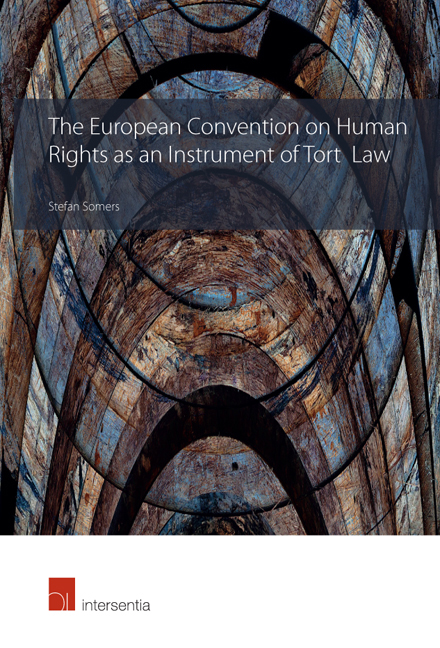Book contents
- Frontmatter
- Dedication
- Contents
- List of Cases
- Introduction
- Chapter 1 Human Rights in Horizontal Relations
- Chapter 2 Articles 13 and 41 ECHR and State Liability
- Chapter 3 The Interaction between Articles 13 and 41 ECHR and Liability in Horizontal Relations
- Chapter 4 Tort Liability as a Violation of Human Rights
- Chapter 5 Article 41 as an Alternative Tort Law System
- Chapter 6 General Outline of Article 41 of the Convention
- Chapter 7 Damages
- Chapter 8 Fault and Blameworthiness
- Chapter 9 Causality
- Chapter 10 Restitution
- Conclusion
- Bibliography
- About the Author
Chapter 8 - Fault and Blameworthiness
Published online by Cambridge University Press: 31 January 2019
- Frontmatter
- Dedication
- Contents
- List of Cases
- Introduction
- Chapter 1 Human Rights in Horizontal Relations
- Chapter 2 Articles 13 and 41 ECHR and State Liability
- Chapter 3 The Interaction between Articles 13 and 41 ECHR and Liability in Horizontal Relations
- Chapter 4 Tort Liability as a Violation of Human Rights
- Chapter 5 Article 41 as an Alternative Tort Law System
- Chapter 6 General Outline of Article 41 of the Convention
- Chapter 7 Damages
- Chapter 8 Fault and Blameworthiness
- Chapter 9 Causality
- Chapter 10 Restitution
- Conclusion
- Bibliography
- About the Author
Summary
In tort law, the fault of the tortfeasor is one of the central elements of liability. This raises the question whether this notion also applies in the ECHR and if so, whether the Court applies it in a similar way as is done in national legal systems and whether both systems interact. In order to answer these questions, this chapter makes a distinction between wrongfulness (objective fault) on the one hand and blameworthiness (subjective fault) on the other hand.
BLAMEWORTHINESS
THE REQUIREMENT OF ACCOUNTABILITY
In order to be held liable in national tort law, a tortfeasor has to be blameworthy. Thus, if a tortfeasor is not accountable (for instance in cases where the tortfeasor is a very young child or is an adult with a mental disability), the damaged person might be unable to receive any compensation. In cases where a human right is violated, this might cause some friction with the requirements of Art. 13. Indeed, if a victim of a human rights violation is excluded from the possibility of receiving any compensation for his damages, one wonders whether the ECtHR would require the state to provide damages instead of the tortfeasor. Most legal systems have provided instruments to provide compensation in cases where damages are caused by someone who is not accountable for his behavior.
In Belgian law for instance, Art. 1386 bis of the Civil Code provides the possibility for a judge to decide on the basis of equity, taking into account the financial situations of both tortfeasor and damaged person in order to decide whether the tortfeasor has to compensate the (full) damages that were caused by a tortfeasor with a mental disability. If damages are caused by young children, the Civil Code provides the possibility of holding the parents liable on the basis of a presumption of liability.
One can think about whether or not it is possible to introduce an objective liability scheme for damages caused by children and mentally disabled persons in combination with a liability scheme. 3 On the other hand, one can also wonder whether it is possible to abandon the requirement of blameworthiness in tort law at all. Indeed, if a fault is only interpreted in an objective way and not in a subjective way, victims of human rights abuses might be able to receive compensation in tort law regardless of the mental state of the tortfeasor.
- Type
- Chapter
- Information
- Publisher: IntersentiaPrint publication year: 2018



